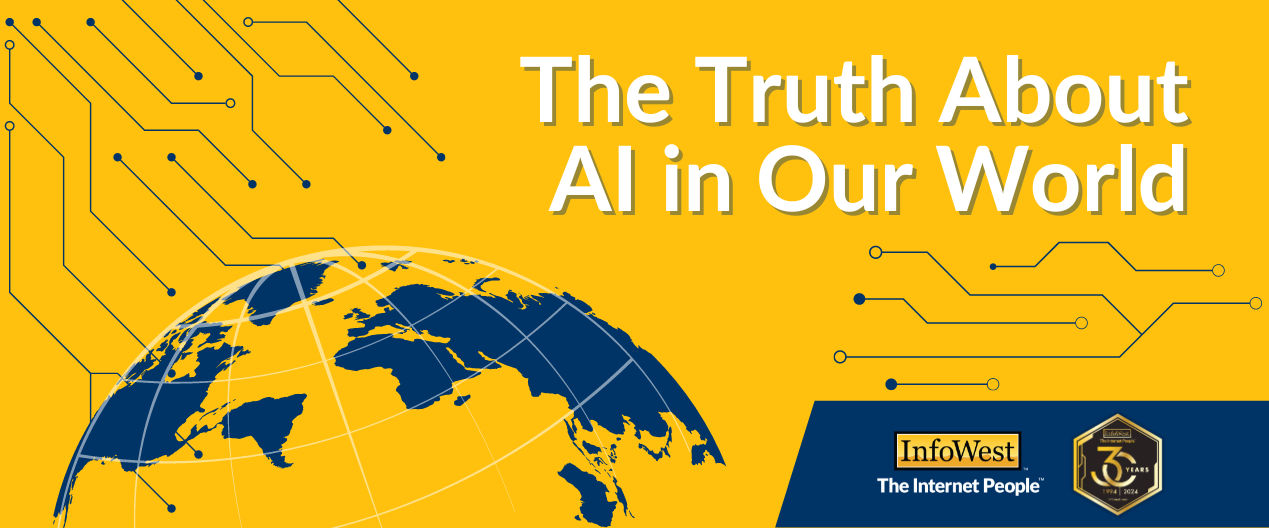The Reality
In today’s rapidly evolving tech landscape, artificial intelligence (AI) captivates both enthusiasts and skeptics. From Hollywood portrayals of sentient robots to real-world industry transformations, AI sparks curiosity, fascination, and occasional apprehension. However, what lies beneath the buzzwords and headlines?
As AI garners more attention, many people often misunderstand its current state in our world. Together, let’s navigate the intricate landscape of AI, discerning between fact and fiction, and fostering a deeper comprehension of this transformative technology that is shaping our world.

Narrow vs. General AI:
Current AI systems, termed narrow or weak AI, possess capabilities tailored for specific tasks and lack the broad cognitive abilities and self-awareness typically associated with general AI. General AI, if achievable, is a theoretical concept that remains speculative and far from realization.
Human Oversight and Control:
Humans create and control AI systems, with ethical guidelines, regulations, and oversight mechanisms in place to ensure responsible development and use of AI technologies. The implementation of AI requires careful consideration of ethical principles and adherence to legal frameworks.
Intentionality of AI:
AI systems operate based on programmed algorithms and data. They lack intentionality of consciousness. AI doesn’t have personal motivations, desires, or a sense of self. It executes tasks based on predefined rules and objectives set by human developers.
Ethical and Regulatory Safeguards:
As AI technology evolves, there is an increasing focus on implementing ethical guidelines and regulatory safeguards. Governments, organizations, and the AI community are actively working to establish frameworks that prioritize transparency, fairness, accountability, and the responsible use of AI.
Collaboration between Humans and AI:
The prevailing trend is toward collaboration between humans and AI. AI technologies aim to enhance human capabilities, automate routine tasks, and offer valuable insights. The focus lies in utilizing AI as a tool that complements human decision-making, although it does not replace it.
While there are concerns about the ethical and societal implications of AI, including issues related to job displacement, bias, and privacy, the idea of AI taking over the world in a destructive manner is not currently a realistic scenario. Responsible development, governance, and a commitment to ethical AI practices are essential to ensure that AI technologies contribute positively to society. Continuous monitoring, discussions, and adjustments in regulatory frameworks will be crucial as AI continues to advance.
Missed last week’s blog? Check it out HERE.
As always, never hesitate to reach out for internet questions! Don’t have InfoWest internet? Call us at (435) 674-0165 or visit us at https://bit.ly/UDYIW2024 to learn more!



